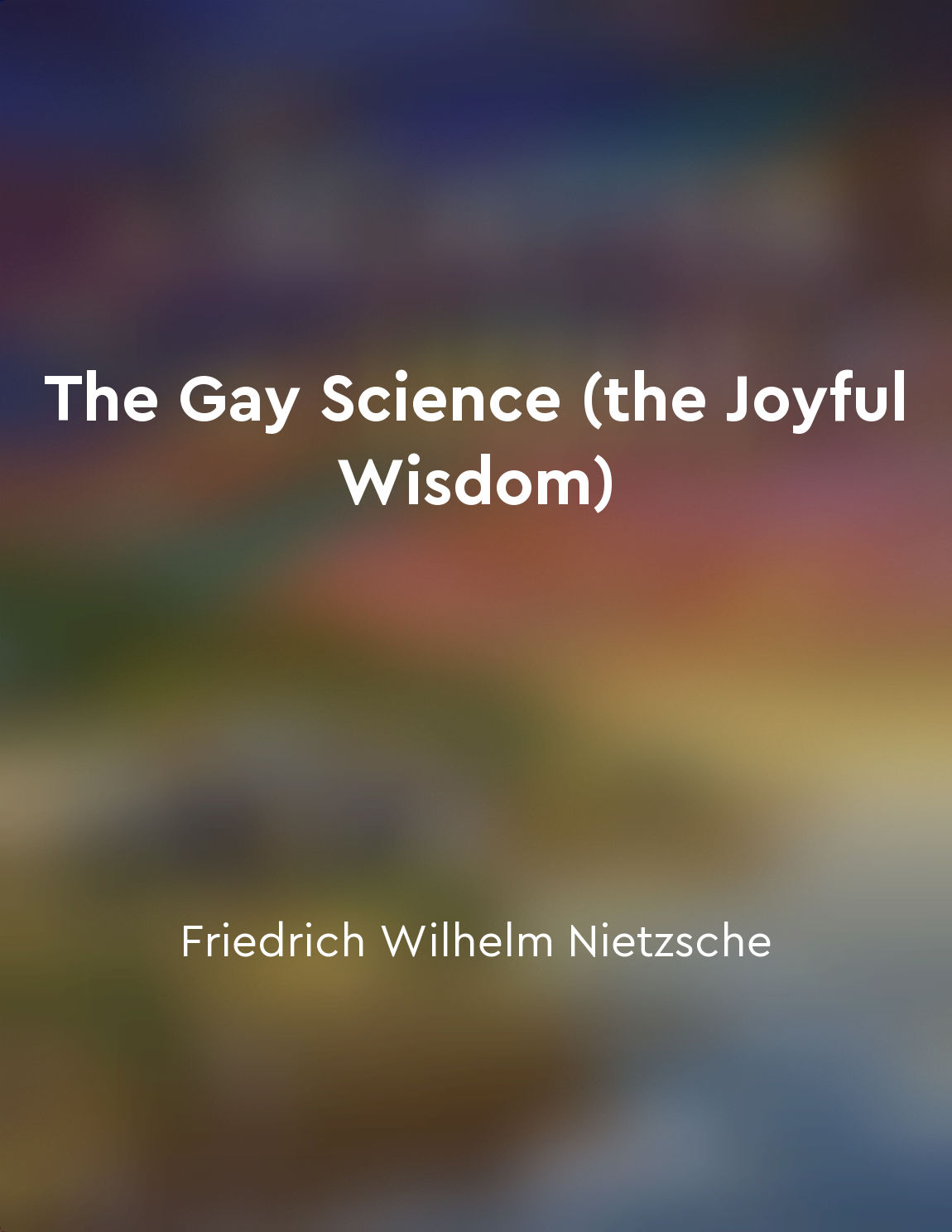Nietzsche advocates for a return to the primordial forces of existence from "summary" of The Birth of Tragedy by Friedrich Nietzsche
Nietzsche's central argument revolves around the idea that human civilization has strayed too far from its primal roots, becoming overly reliant on rationality and logic. He believes that this departure from the instinctual and emotional aspects of existence has led to a spiritual crisis in which individuals are disconnected from the true essence of life. Nietzsche asserts that the ancient Greek tragedians understood the importance of embracing these primordial forces, as exemplified by their incorporation of Dionysian elements into their art. The Dionysian, according to Nietzsche, represents the chaotic and irrational forces that underpin human existence. It is characterized by qualities such as ecstasy, intoxication, and a dissolution of the boundaries between self and other. By tapping into these primal energies, individuals can transcend their mundane concerns and experience a sense of unity with the cosmos. Nietzsche argues that the Dionysian is essential for achieving a deeper understanding of the world and oneself. In contrast to the Dionysian, Nietzsche identifies the Apollonian as the rational and orderly aspect of existence. While the Apollonian provides structure and form, it can also stifle creativity and spontaneity. Nietzsche contends that the ideal artistic expression arises from a synthesis of these two forces, as seen in the tragedies of ancient Greece. Through the fusion of the Dionysian and Apollonian, artists are able to convey profound truths about the human condition.- People can find a sense of meaning and vitality that is lacking in the modern world. In essence, Nietzsche advocates for a reevaluation of the values that have come to dominate Western civilization, urging individuals to rediscover the primal energies that lie at the heart of human experience.
Similar Posts

Be independent in thought and action
To be independent in thought and action is to trust oneself above all others. It requires a willingness to reject societal norm...
Pepys strives to improve his professional standing
Samuel Pepys, in his diary, reveals his relentless pursuit of advancement in his professional life. Throughout the entries, he ...
Resentment undermines moral integrity
Resentment, as a powerful and pervasive emotion, has the ability to corrode and erode moral integrity. It is a feeling of bitte...
The eternal struggle between the Apollonian and Dionysian forces shapes human creativity
The creative impulse of humanity is not a seamless and harmonious process, but rather a constant battle between opposing forces...
Absurdity can coexist with joy and love
In the face of an absurd world, one may question whether joy and love can still exist. The absurdity of life, as depicted by th...

Human beings are driven by a mix of selfinterest and social obligations
Human nature is a complex interplay of various motives and drives. At the core of human behavior lies a delicate balance betwee...
Absurdity can coexist with joy and love
In the face of an absurd world, one may question whether joy and love can still exist. The absurdity of life, as depicted by th...
Absurdity arises from clash between human desire for meaning and indifferent universe
The absurd is born of this confrontation between the human need for meaning and the unreasonable silence of the world. It is ou...

Cultivate resilience in the face of adversity
The idea of facing adversity with resilience is a fundamental aspect of life that Nietzsche explores in his work. He emphasizes...

